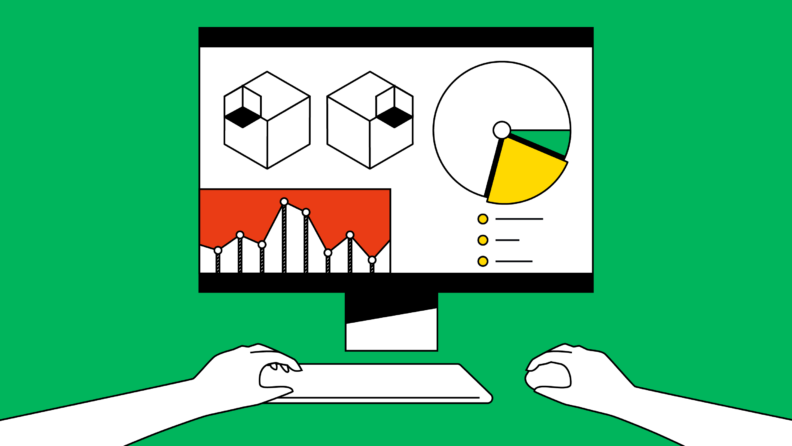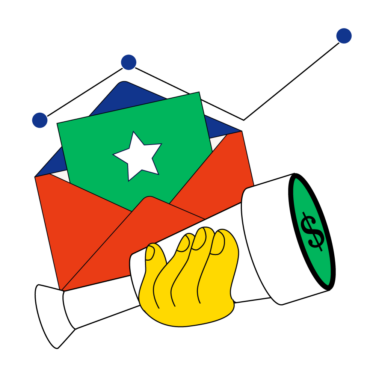Marketing automation is big business. HubSpot estimates that 76% of companies make use of automation tools, and CRM/marketing automation integration is one of the most in-demand CRM features, with 55% of sales and marketing experts demanding such abilities from their software.
This article covers both CRM software and marketing automation, how the two tools work individually, and how they can work together to streamline not only the customer experience but align sales and marketing efforts.
What Is Customer Relationship Management?
Customer relationship management (CRM) software is used by sales, marketing, and customer success teams to manage their respective parts of the pipeline. It stores information about customers and their interactions with the company, including:
- Customer contact details
- Dates of past phone conversations
- Dates of past email/ticket interactions
- Notes about previous conversations
- Purchase records
- Marketing preferences
CRM software gives go-to-market teams an at-a-glance overview of each customer’s current status. Whether they’re preparing to make a sales call or are fielding a request for support from a customer, they can check the CRM platform and find out what others at the company have said to that individual, what they’re interested in, and what the next step in their customer journey might be.
Top Picks for CRM Software
These are a few of my favorite CRMs on the market today:
The Benefits Of CRM Software
CRM software helps everyone within a company offer better service to leads and customers. It’s particularly useful for growing organizations that have a lot of people to deal with. A small business may be able to keep track of everything in a simple spreadsheet, but when you have teams of customer service and sales staff who are dealing with people via email, social media, and phone, having all the information about each customer in one place can be invaluable.
The key benefits of CRM tools include:
Better Organization
Rather than having to search through emails, social media messages, and ticketing systems, all of the information for a customer or lead can be found in one place, so every department knows what the other departments are doing.
Improved Task Tracking
Teams will find it easier to keep track of scheduled callbacks, follow-ups, or other tasks when they can flag up those tasks in one central platform. Schedule lead nurturing activities or follow up after resolving complaints to improve customer satisfaction.
Increased Sales Opportunities
CRM software allows the sales team to track customers through their entire journey. Rather than trying to guess what products to upsell to an existing customer, or whether someone is a hot or cold lead, they can work on the information in the CRM database. Informed marketing efforts are more likely to be successful, and are a better use of the sales team’s time.
Personalized Communication
Improve the customer experience by personalizing marketing emails and other interactions. Make automated email communications look more carefully targeted and add value to your messages. CRM software lets you know exactly where each lead is in the lead funnel, making your marketing efforts more likely to succeed.
What Is Marketing Automation?
Marketing automation software is a tool that can be used to perform repetitive marketing tasks and also measure your conversion rate. This software can help teams understand the performance of their marketing efforts by tracking metrics such as customer engagement, helping you make better decisions when planning future marketing campaigns.
Marketing automation tools can streamline a variety of tasks, including:
- Scheduling and sending out emails
- Mailing list management
- Lead management
- Social media management
- SMS marketing
- Other digital marketing
Top Picks for Marketing Automation Software
From lead gen to email automation, these are some of the best marketing automation software options:
The Benefits Of Marketing Automation Software
Around 50% of marketers who currently use marketing automation tools say they use them every day. These tools help marketers work more efficiently, freeing them from “busywork."
Marketing automation software makes many of the most time-consuming marketing tasks much easier. It helps salespeople focus on the parts of their jobs that only humans can do, giving them more time to focus on lead generation, follow up on and nurture leads, and build relationships with existing customers, instead of battling with mailing list software or spreadsheets.
Improved Workflow
When used to its full potential, marketing automation software builds a workflow to identify the most qualified leads and nurtures them along the buyer's journey, eventually, converting them into customers.
Marketing automation software evaluates the performance of each step of the campaign and reduces wasted time and effort. CRM integrations are a particularly important part of this, helping marketers assess leads and make better decisions about the direction of their future efforts.
Increased Productivity
Marketing automation can take over a lot of the micromanagement of marketing tools such as mailing list software, analytics tools, etc.
The automation features can pull information from other third-party tools and use that information to guide future marketing campaigns.
Opportunities for Personalization
Email templates can be personalized with information pulled from CRM software via API integrations, and other outreach techniques can be scheduled based on where the user is in the conversion funnel.
Sending more personalized marketing materials helps improve the customer’s perception of the brand. Generating high-quality leads is a challenge for 37% of marketers, and personalization is shown to be more effective in converting leads.
Higher Conversion Rates
When your marketing is highly personalized, sent at the right frequency, and targeted based on the customer’s demographic and interests, you’re more likely to get a positive response from your target audience.
The Difference Between CRM And Marketing Automation
In a nutshell, a CRM system is a database that holds information about customers and leads, and your company’s interactions with them. A marketing automation system is a tool that automates your marketing campaigns by allowing your team to define conditions and triggers that cause certain actions to be taken.
Why You Need Both CRM And Marketing Automation
Marketing automation saves time by helping you automate the most time-consuming marketing processes. For your marketing efforts to be their most effective, however, you’ll need to target them accurately. CRM software is useful for this because it keeps all of the information you need about your target audience in one place.
Marketing automation truly comes into its own when it has real-time access to analytics data and information about your customers via your CRM platform. By feeding information from your other software into a marketing automation platform you can use that software to engage in lead scoring, tailor your email campaigns, and arm your marketing team with the information they need to keep their leads moving through the funnel.
Both types of software are useful in their own right. Your CRM tools can be invaluable for customer retention and support, and automation tools can augment social media and email marketing quite effectively. However, if you’re not using the two tools in conjunction with each other, you’re missing out on some opportunities to turn a good marketing strategy into an amazing one.
Need expert help selecting the right CRM Software?
We’ll match you with an expert to help you find the right CRM for your business.
The Benefits Of Integrating Your CRM With Marketing Automation
Integrating your CRM platform with marketing automation makes both more effective:
Better visibility between Marketing and Sales
Connecting your marketing automation tool to your CRM software allows marketing and sales teams to better understand their target demographics. The marketing software can use information from the CRM system to better manage their database. For example, only sending out certain emails to customers who have interacted with the company recently.
A shorter sales process
Many B2B and SaaS companies have long sales funnels and getting a lead to move from one step in the conversion process to the next can be a complex process. Using a CRM alongside your marketing automation solutions can make it easier for your sales team to nudge qualified leads from one part of the sales funnel to the next.
After all, the faster you can get leads and prospects through the funnel, the more earning potential for the sales team. If you need help tracking sales compensation, take a look at our guide to sales commission software.
Consistent messaging
Being able to refer to information recorded in your CRM solution helps keep your messaging consistent. Again, particularly in B2B and SaaS sales, a lead may deal with several different people across multiple departments. Having information about past conversations recorded in Salesforce or some other CRM helps your sales reps keep their messaging consistent.
Unified data
New leads may have their first contact with a company via social media, followed by signing up for a Mailchimp mailing list, then perhaps opening a trial account and raising a ticket in a help system.
Lead nurturing becomes much easier when all the information about those customers is recorded in one place, so your sales reps and support teams know what that person is interested in and what’s been said to them before.
Reduced human error
So far, we’ve talked a lot about how automation can help to optimize the sales pipeline and save time. Another benefit of effective automation is that it reduces the likelihood of human errors creeping in.
When your marketing platform can pull information from your CRM tool in real time and use that information as a part of the decision-making process, you should find your campaigns are more focused and use your resources more efficiently than they did when you made decisions by hand.
CRM And Automation Combine To Make A Powerful Marketing Platform
Whether you work in the B2B or B2C world, finding ways to market your products and services more efficiently and improve the customer experience is essential. Today, consumers are bombarded with messages from companies competing for their limited time and budgets. It makes sense to use every tool available to you to reach as many prospective customers as possible and convey your messages to those customers in a personalized and memorable way.
Marketing automation software helps you do just that. CRM software fulfills a different, but still essential role, and combining the two tools can help you keep your existing customers engaged, and reach new ones.
Ready to take your RevOps to the next level? Sign up for software reviews, expert tips, and career resources from The RevOps Team.



